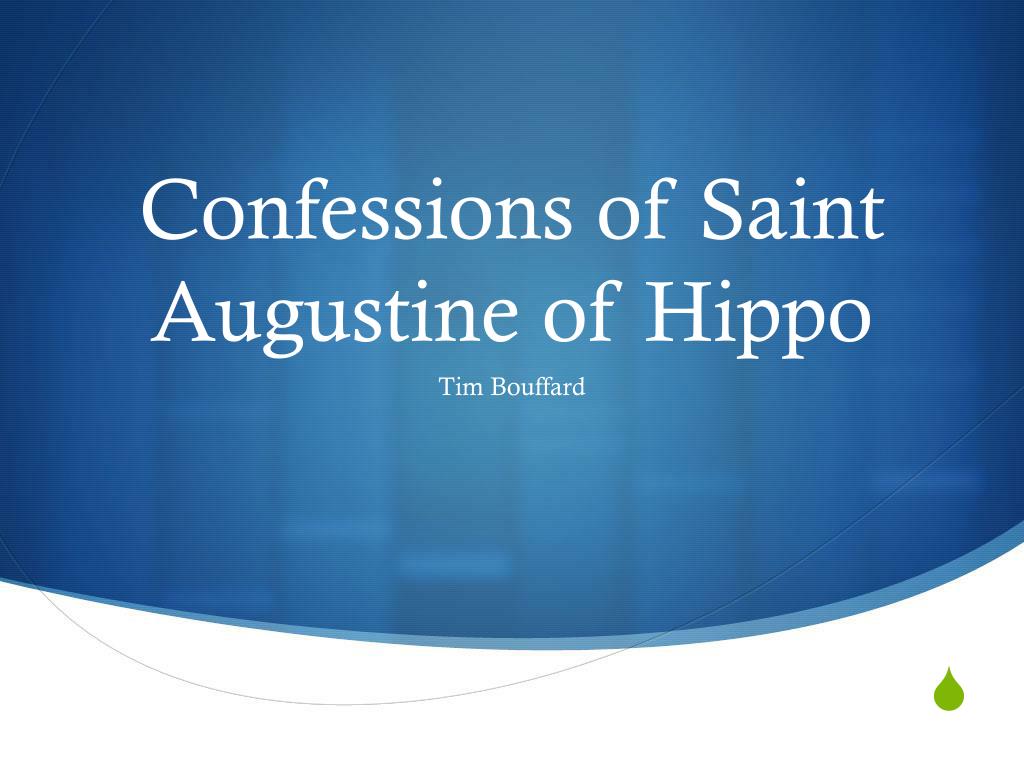

Augustine's honest account of his own failings and his journey towards repentance and redemption can inspire us to reflect on our own lives and seek forgiveness for our sins. Augustine" can serve as a guide for introspection and self-examination. As we approach the season of Lent, "The Confessions of St. Augustine shares his spiritual journey and reflects on his struggles with sin, his conversion to Christianity, and his deepening relationship with God. Written in the form of an autobiographical account, St. Augustine" is a timeless classic that provides a profound insight into the life of one of the most influential figures in the Christian faith. The book remains a beloved and influential work in the Christian tradition and beyond.

Augustine uses vivid imagery and metaphors to convey the depth of his spiritual struggles and his profound love for God. Augustine" is also notable for its literary style, which is highly poetic and introspective. In addition to its spiritual and philosophical themes, "The Confessions of St.

The book is widely regarded as a masterpiece of early Christian literature and has had a profound influence on Christian theology and philosophy. Augustine" is a powerful and introspective work that delves into themes of sin, redemption, grace, and the nature of God. Written in the form of a prayer addressed to God, "The Confessions of St. The book is a deeply personal exploration of Augustine's own spiritual journey and struggles, tracing his life from his youth in North Africa through his conversion to Christianity and his later years as a bishop and theologian. Augustine" is a spiritual autobiography written by Saint Augustine, one of the most prominent Christian theologians and philosophers of the 4th and 5th centuries.


 0 kommentar(er)
0 kommentar(er)
